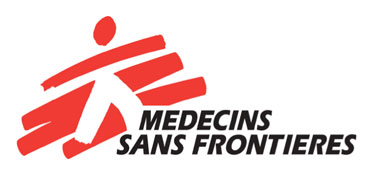Chiang Mai (Mizzima) – An important source for medical and health services for Burmese refugees and migrant workers, Médecins Sans Frontières (MSF), has announced it will withdraw its services in Thailand. No date was given when the announcement was made in Bangkok on Tuesday.
 The health group, which had 41 staff in Thailand in 2010, has been working in the country since 1976, serving Burmese and other refugees along the Thai-Burmese border by providing medical assistance and other services to a refugee population which numbers more than 130,000 people.
The health group, which had 41 staff in Thailand in 2010, has been working in the country since 1976, serving Burmese and other refugees along the Thai-Burmese border by providing medical assistance and other services to a refugee population which numbers more than 130,000 people.
“MSF faces an increased tension on its resources due to the importance of the emergency interventions in the Operational Centre Brussels portfolio, such as the Arab springs in Libya, Syria and the crisis in the Horn of Africa, which are forcing MSF to prioritize its interventions,” said a letter signed by Mr. Denis Penoy, the head of mission of MSF-Belgium-Thailand, dated September 7.
When MSF withdraws, Burmese refugees and others living along the Thai-Burmese border will encounter health difficulties, said the Mon National Health Committee (MNHC).
“In our Mon area, with support by the MSF, we have eradicated malaria among more than 10,000 IDPs (Internally displaced persons) and more than 10,000 people. If MSF withdraws from Thailand, our people will suffer many consequences,” MNHC official Naing Chay Mon said.
The MSF branch office in Chedi Sam Ong, adjacent to Three Pagoda Pass, was closed in late June by order of the Thai authorities, affecting about 5,000 Burmese migrant workers in the area.
MSF also provides medical assistance to refugees along the Cambodia-Laos border, and to Hmong refugees in Phetchabun Province. Since 1999, it provided health services and helped to eradicate tuberculosis and malaria among Burmese migrant workers in Tak Province and refugees in Mae La camp.
From 2005 until 2009, it opened clinics serving thousands of Burmese Tsunami-victims from Phang Nga Province in southern Thailand and appointed Burmese health workers to staff its health centres. It has also run a health service programme for Burmese workers in Samat Sakhon Province in Thailand and people living around Three Pagoda Pass on the Thai-Burmese border.
Among its projects in Thailand are the “Kayah backpackers,” based in Mae Hong Son, in the north of Thailand.
MSF staff in Thailand train “backpackers” from Burma so they could provide basic healthcare. The backpackers then traveled back across the border and worked as mobile medical teams, visiting people living in remote villages in Kayah State in eastern Burma.
MSF closed its malaria project in New Mon State at the end of June. Staff working from a base on the Thai side of the border had been supporting malaria control initiatives in Burma, distributing mosquito nets, training community health workers and diagnosing and treating patients.
In the Three Pagoda Pass area, MSF served unregistered migrant workers who were excluded from healthcare, and undocumented migrants in need of care who fear that a visit to a health centre may result in deportation.
In Samut Sakhon, an industrial zone where thousands of undocumented migrants live and work, MSF staff operated a clinic that diagnosed and treated 170 people for cholera after an outbreak at the end of 2010.


